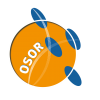Creating Sustainable Public Sector Open Source Communities
- Track: BOFs (Track A - in J.1.106)
- Room: J.1.106
- Day: Saturday
- Start: 17:30
- End: 19:00

The Open Source Observatory (OSOR) of the European Commission is an online collection that provides its community with an information observatory, community building activities, as well as assistance and support services. On behalf of OSOR, we propose to make a presentation on the currently ongoing study towards a guidelines document for creating sustainable open source communities in the public sector. In this context, OSOR is producing guidelines for creating sustainable open source communities within the public sector. The purpose of the guidelines is to act as a practical tool that can be used by public sector officials interested in establishing open source communities or by members of such communities. The production of the guidelines is a multi-step process, involving desk research, primary data collection, development of four case studies and conduction of interviews with key stakeholders. After presenting the objectives and approach to produce the guidelines, the OSOR representatives will present the preliminary findings related to the guidelines, including the key success factors associated with healthy communities. The audience will be also invited to further brainstorm in groups the key success factors of sustainable OSS communities as well as to identify the key components that our guidelines should contain.
The production of the guidelines is a multi-step process, involving both desk research and primary data collection. More specifically, our team has conducted an in-depth literature review, followed by a questionnaire targeting OSS communities in the public sector, which will be running between January and February 2020. Following the analysis of data collected from the questionnaire, our team will develop four case studies illustrating successful and failed OSS initiatives in the public sector. Interviews with key case study stakeholders are to be conducted within each case study. The key objective of our workshop at FOSDEM is not only to present our preliminary findings to the audience but to also obtain their views on our findings and future guidelines. We want to ensure that OSOR puts forward truly community driven guidelines. During the workshop, we will recount the findings so far which are the data of the literature review and survey. More specifically, we will present the key success factors and their components associated with sustainable OSS communities as well as some interesting failed and successful public sector OSS initiatives. The audience will be then invited to further brainstorm in groups the key success factors of sustainable OSS communities as well as to identify the key components that our guidelines should contain. We will also invite the audience to contribute to our ongoing survey and invite them to get in touch with the OSOR community for further ideas on our guidelines and case studies.
The target group of OSOR is wide-ranging within the open source community. It includes policy makers, IT managers, IT developers, researchers and students, and OSS advocates and enthusiasts in general. OSOR invites members of the audience who are interested in the development of OSS within public administrations, community managers and members, developers and organisations who would like to learn more about the project of measuring the health and sustainability of an open source project. The audience is also invited to follow the work of OSOR and the European Commission on OSS more closely. OSOR promotes collaboration, sharing and digital development through various services provided to its community.
Speakers
| OSOR team |